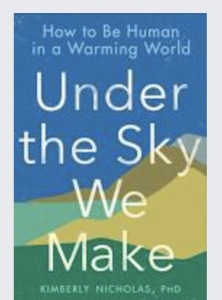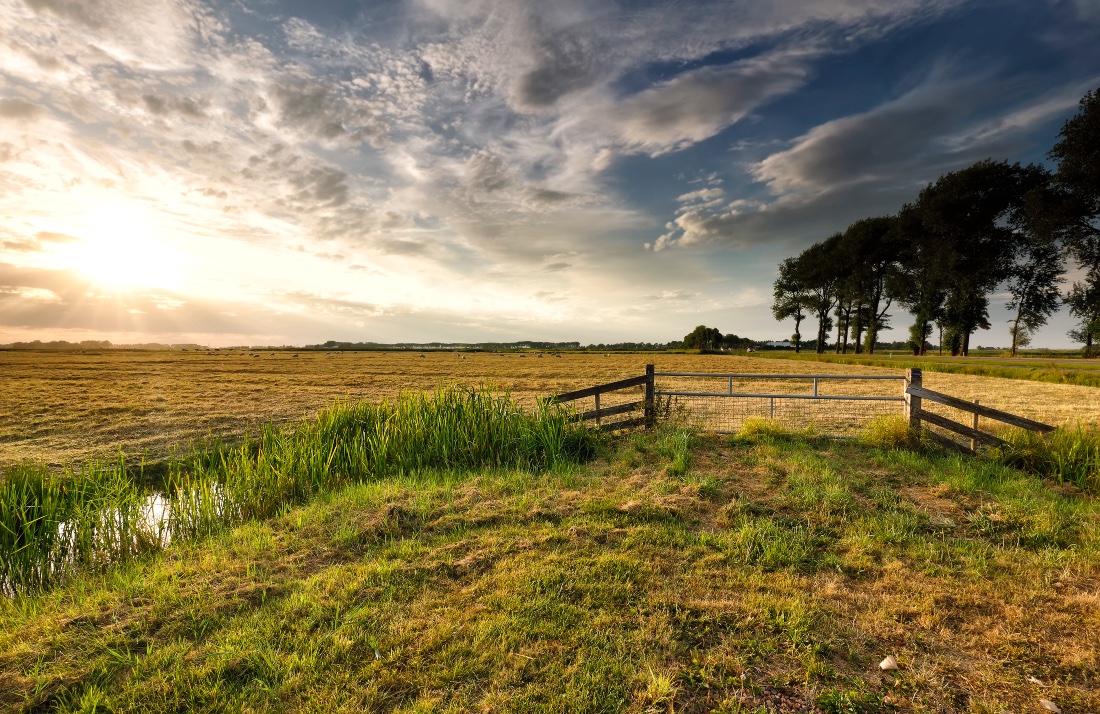Some climate deniers angrily ask that environmentalists follow their own advice and reduce their own emissions before telling everyone else what to do. Kimberley Nicholas, the author of
Under the Sky We Make: How to be Human in a Warming World (2021) has done just that. She not only “talks the talk,” she “walks the walk.”
At Sustainable Orillia, we are always looking for ‘real life’ examples of what one person can do to reduce emissions. Nicholas’s book is about climate change (“It’s warming, it’s us, we’re sure, it’s bad, we can fix it.” p. 249). It is also her personal story—the story of her coming to the understanding that she, too, was complicit personally in the warming process. When she examined her own lifestyle—particularly her participation in conferences around the world, conferences to which she travelled more often than not by air travel, one of the worst generators of carbon emissions—she realized that she would have to change her way of doing things if she was going to ask others to do the same.
Nicholas, holder of a PhD in “Environment and Resources” from Stanford University in California has published “more than fifty articles on climate and sustainability” and her research has been printed in leading media outlets and magazines. Though born and raised in California, she is currently associate professor of Sustainability Science at Lund, the highest-ranked university in Sweden.
Nicholas’s epiphany about her own culpability first surfaced at a conference she was attending in Vienna in 2012. Flying so often to these types of event made her start to feel “like I was attending a conference of doctors puffing on cigarettes while telling our patients to quit smoking” (p. 154). Since she was then working in Sweden, her first decision was “not to fly within Europe.” But she also started to reconsider if she really had to attend in person. She started to record digital presentations. She only agreed to trips she felt are really important—and then she found a way to travel overland, preferably by train (p. 155). Though this change meant seriously changing her use of time for travel, she found it “liberating to have made a few decisions about things that really mattered, to the climate and to me” (p. 155).
She writes that, like many of us, “I’d been so stuck in my status quo I hadn’t seen its downsides.” The result of stepping back and reconsidering her practices led to her cutting her flying emissions “about 90 percent.” She now takes just one flight a year—to visit family in California.
Many of us living in and around Orillia take for granted that we will fly south for a vacation, or fly to Florida or Mexico to escape winters. Many people fly to the East coast or the West coast to visit family. Using a New York to London flight as her example, Nicholas points out that “to equal the emissions from that one return plane trip, you’d have to skip meat for two years or eight months of typical driving” (p. 157). Reducing our flying is one of the most important things we can do to reduce our personal emissions.
Her story also demonstrates how where you live can help reduce your personal emissions. When she moved to Sweden, she sold two cars she’d owned in California. She chose an apartment in the middle of town, “within walking distance to everything.” Cooking her own meals, she stopped buying meat. Some of these actions, including reducing flying, are not quite as easy to do here in Ontario as in Europe—but for the sake of the planet and everyone living on it, we need to try.
What else does she do to reduce her personal greenhouse gas emissions? She bundles up in winter, saving both “money and carbon.” She doesn’t have an air conditioner. She washes clothing in cold water. She doesn’t use a clothes dryer, hanging clothing to dry instead. And one more thing: “I found I wasn’t using the food in my freezer effectively, so I unplugged it and was using it as an insulated wine cellar” (p. 166). Hmmm . . . now there’s an idea.
There is much more to this book than her personal story, but revealing her personal story and her own efforts to live more sustainably, especially as she does so with both honesty and humour, makes this book an inspiring read as well as an informative and enjoyable one.
Under the Sky We Make. We recommend it. Manticore Book Store can certainly find you a copy.

